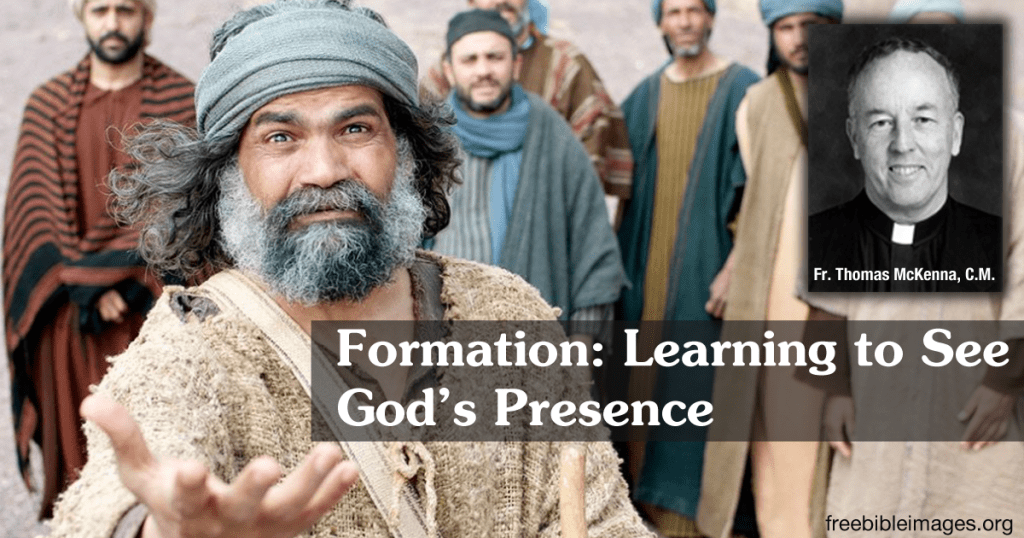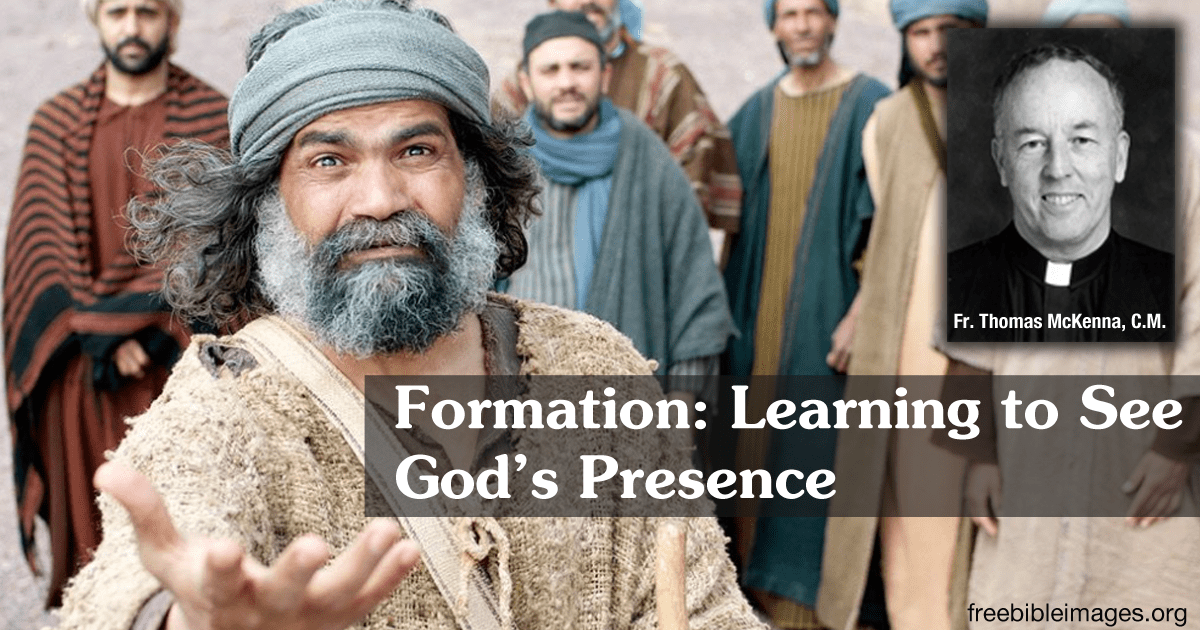Formation: Learning to See God’s Presence

“Formation:” Learning to See God’s Presence (Mk. 3:7-12)
One way of looking at this story of healing in Mark is to see it as a case of the wrong people discerning the right things. On the one hand, you’ve got these hoards of people following Jesus, and in so dense a number that Jesus tells his disciples to get an escape boat ready lest they be crushed. This break-down-the-fences crowd was rushing at Jesus because he was curing one person after another and the word had gotten out. “Those who had diseases were pressing upon him.” As one writer put it “any healer in those days would have caused a stampede,” as seemed to be happening here.
But what were they intent on as they came running? It would seem a mostly physical healing, a cure of their bodily ailments. For sure this was a wonderful thing, but it seems they didn’t recognize the fuller kind of healing at hand, the real depth of what was going on. They didn’t grasp that it wasn’t just a gifted physician in front of them treating their chronic diseases, but someone more. He wasn’t reaching just into their bodies but also into their souls as it were. It wasn’t just a medicinal healing but more profoundly a spiritual one. If they had locked onto that more encompassing scope, they would have recognized who Jesus really was.
But who are the ones in this story who do recognize what’s going on? It’s the demons. “Whenever the unclean spirits saw Him they would fall down before Him and shout, ‘you are the Son of God.’” The people miss it, their eyes more on the surface of the events. The unclean spirits get it with their attunement to that deeper realm of things, the realm of the spiritual. It’s they (and not even the disciples) who recognize the Messiah, here and in other places too. In more modern terms, they are the ones who do the more accurate discernment.
In a lot of ways, what Jesus is trying to do with his disciples is give them that eye for (and love for) the next level. His strategy comes through in the phrase, “he withdrew toward the sea with the disciples.” What was he intending to do by getting them away from the crowds, by spending more concentrated time just with them so as to let them get to know Him better? The long term answer is: he was trying to get them “to see.”
He wants to tell them that their eyes are actually seeing what others are mostly missing. He’s trying to open up their pores to take in what’s really going on in and around Him, the breaking in of the Kingdom. His purpose is to turn them into more perceptive followers, people growing more responsive to the presence of God’s Spirit right in the middle of all that’s going on. He’s trying to make their sensitivities to God’s nearness as least as acute as the demons’ (though without the repulsion!)
Isn’t this a paradigm for the project of Christian formation, and the Vincentian brand especially? Isn’t formation the attempt to help others be more attentive to the presence, power and care of God — as that is found in themselves, in their companions, in their world, and especially in the people they would serve?
And aren’t the more intensive times of formation (workshops, retreats, seminary), modern day forms of that “withdrawing toward the sea with disciples,” that moving away from the crowds for a while for the purpose of heightening alertness to where God is (and is not) in life? Formation programs are fresh instances of that “withdrawal for the sake of seeing what’s really there.”
It’s encouraging to note that the “formation director,” Jesus Himself, does not get high marks for opening the his pupil’s eyes right away, especially as we read Mark’s unflattering account of the disciples’ thick-headedness in recognizing the Messiah in their midst. The road to that clearer sight is winding and long, even if a person has the best of teachers and the most innovative of programs. But the goal remains, learning to notice God’s presence — and especially for us Vincentians, discovering that loving presence in people who are poor.
Tags: McKenna







Thanks a million Fr. Tom for such a deep and beautiful thought. Fr. Pratap, India.
Events … They are God’s! The Vincentian eye that sees Jesus in the poor must also be quick to sense Jesus’ presence in the ordinariness of daily living. Only by so doing do we become truly immersed in Christ!
Thank you, Fr. Tom, for this very apt reflection.